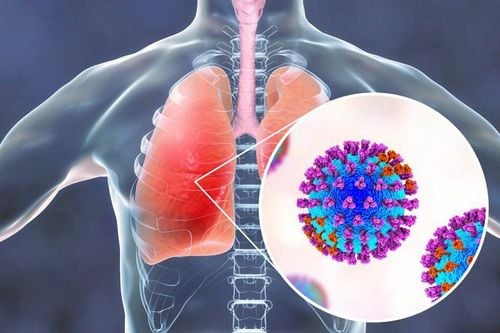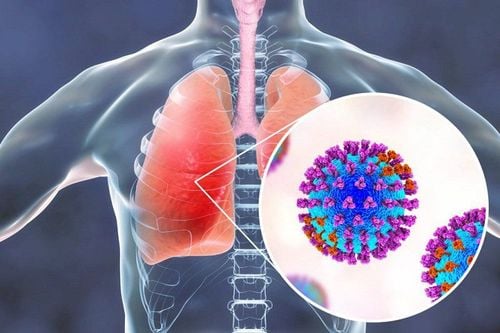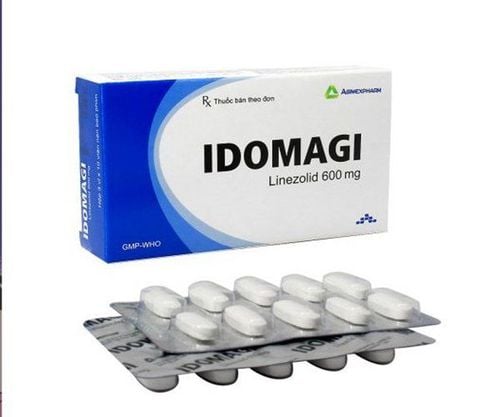This is an automatically translated article.
Bacterial pneumonia is the most common of all pneumonias in adults. Bacterial pneumonia is usually not difficult to recognize and treatment is not usually too complicated.
1. What is bacterial pneumonia?
Bacterial pneumonia is a common medical condition caused by a bacterial infection in the lungs, causing the tissues in the lungs to become inflamed and affecting the functioning of the lungs. Bacterial pneumonia ranges from mild to life-threatening.
The most common type of bacteria that causes pneumonia is streptococcus (Streptococcus), but strep is not the only type of bacteria that causes pneumonia. Normally, the human pharynx has the natural presence of streptococcus, but in healthy people there should be no problems. If for some reason the health is poor, the streptococcus bacteria can penetrate deep into the lungs and cause pneumonia. People at higher risk for bacterial pneumonia include:
People 65 years of age and older Pre-existing chronic medical conditions such as asthma, diabetes, cardiovascular disease,... Moderate undergoing surgery Improper nutrition or undernutrition Immunocompromised Smoking tobacco Heavy drinking or alcohol abuse Having viral pneumonia

Liên cầu khuẩn Streptococcus gây viêm phổi
2. Symptoms of bacterial pneumonia
The signs and symptoms of bacterial pneumonia can manifest very quickly and aggressively, lasting for several days, most commonly:
High fever (up to 40.50C) Cough a lot, cough with phlegm, sputum is green, yellow or may be slightly bloody Chills, even chills Shortness of breath, shortness of breath is greatly increased when the patient is active Feeling very tired Eating no appetite, anorexia Chest pain, even May have stabbing pain, sharp pain when coughing or taking deep breaths Profuse sweating Rapid breathing In severe cases the patient may be lethargic, purple lips, purple extremities

Người bệnh đau ngực khó thở
To diagnose bacterial pneumonia, doctors may need to take a history, do a physical exam. The next step is to measure blood oxygen saturation. Indications for chest X-ray, blood test, sputum test. In some cases, the doctor may need to order a computerized tomography scan (CT Scan).
Trắc nghiệm: Làm thế nào để có một lá phổi khỏe mạnh?
Để nhận biết phổi của bạn có thật sự khỏe mạnh hay không và làm cách nào để có một lá phổi khỏe mạnh, bạn có thể thực hiện bài trắc nghiệm sau đây.3. Treatment of bacterial pneumonia
Antibiotics are the mainstay of treatment for bacterial pneumonia. Besides antibiotics, the doctor may prescribe other drugs to treat symptoms, such as antipyretics, pain relievers,... For severe cases of pneumonia, the patient will need to be hospitalized. so that other supportive treatments and interventions, such as oxygen, can be applied.
To make the treatment process more convenient, the patient needs to rest a lot, drink enough water and especially not smoke. Most patients with bacterial pneumonia will start to feel better after a few days of treatment, but feeling completely back to normal can take several weeks.
4. Prevention of bacterial pneumonia
To prevent bacterial pneumonia can be done in a few simple ways:
Get vaccinated - pneumococcal vaccine Wash hands properly, regularly Exercise regularly Maintain a healthy diet eat a healthy, balanced diet, increase your intake of vegetables and fruits Get enough sleep Don't smoke, or quit smoking Do not have close contact with people who are sick Bacterial pneumonia is an inflammatory disease Common lung diseases, if examined and treated early, will not affect health nor cause complications for the lungs later. To prevent bacterial diseases that cause pneumonia, it is very important to have a full vaccination schedule, as well as maintain a healthy diet and exercise routine.
Periodic health check-ups help to detect diseases in general and pneumonia in particular early, thereby creating a treatment plan for optimal results. Currently, Vinmec International General Hospital has general health checkup packages suitable for each age, gender and individual needs of customers with a reasonable price policy, including:
General health checkup package diamond Vip General Health Checkup Package Special General Health Checkup Package Comprehensive General Health Checkup Package Standard General Health Checkup Package Patient's examination results will be returned to your home. After receiving the results of the general health examination, if you detect diseases that require intensive examination and treatment, you can use services from other specialties at the Hospital with quality treatment and services. outstanding customer service.
Customers can call hotlines of hospitals or register for online consultation with Vinmec HERE.
Articles refer to the source: webmd.com













